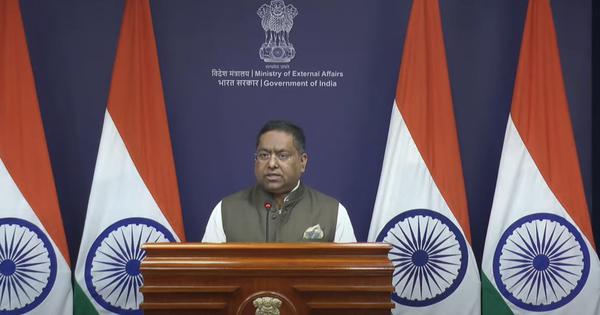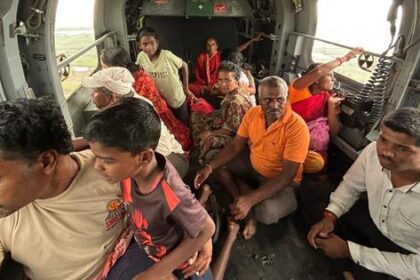India criticizes Pakistan’s oppressive tactics amid ongoing protests in Pakistan-Occupied Kashmir.
The Indian government has asserted that Pakistan must be held accountable for what it describes as horrific human rights violations occurring in Pakistan-Occupied Kashmir. This statement follows a series of protests in the region, where at least nine individuals, including three police officers, reportedly lost their lives during violent clashes in recent days. The protests have emerged from widespread discontent among residents, who are demanding basic rights and an end to what many characterize as systemic oppression by the authorities.
During a weekly press briefing, Randhir Jaiswal, the spokesperson for India’s Ministry of External Affairs, highlighted the situation in Pakistan-occupied Kashmir, noting that reports indicate severe brutality inflicted by Pakistani forces upon innocent civilians. Jaiswal stated that the protests are a direct result of Pakistan’s oppressive policies and its ongoing exploitation of resources in these territories, which India maintains are under illegal occupation.
The Joint Awami Action Committee, a coalition of civil society members, including students, businesspersons, and professionals, is leading the protests. This group has articulated a list of 38 demands, which reflect the frustrations of the local populace. Among their requests is the abolition of 12 reserved seats in the region’s Legislative Assembly, which are designated for migrants from Jammu and Kashmir who have settled in Pakistan. Protesters argue that these seats have been manipulated by the Pakistani government to undermine local governance.
In addition to the demand concerning legislative representation, the Joint Awami Action Committee has called for the withdrawal of legal cases against previous demonstrators. They are also advocating for the allocation of royalties from hydropower projects in the region, alongside other requests that pertain to essential services such as health care, education, and infrastructure development.
The protests intensified following a shutdown called by the Joint Awami Action Committee that commenced on September 29, which subsequently prompted a response from law enforcement. Notably, a delegation from the Pakistani government has recently engaged in discussions with the protesters, marking the first round of talks since the demonstrations began. These developments underscore the ongoing tensions and challenges faced by residents in Pakistan-Occupied Kashmir, as they seek to voice their grievances against the prevailing conditions.








